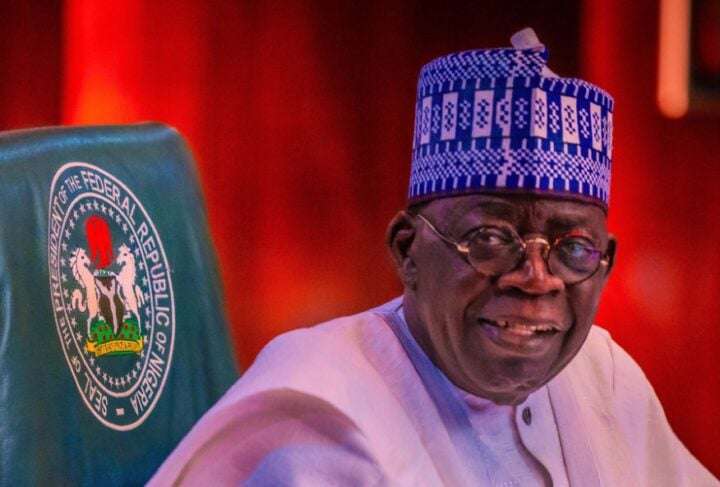Opinion
A look at budget 2024 of Renewed Hope, By Boniface Chizea

President Bola Ahmed Tinubu presented as anticipated the details of Budget for the year 2024 before a joint session of the National Assembly on Wednesday November 29, 2023.
The Budget was themed Budget of “Renewed Hope”. This title given to the Budget is quite appropriate and perceptive as it is an implied and implicit admission of the fact that the hope of a generality of our citizens is at an all-time low. This observation could be readily corroborated from the unprecedented rate of migration of Nigerian citizens outside the Country often to face uncertain and problematic future. We wish the Government and Nigerians for that matter God’s speed as we pursue this deserved and urgent objective of restoring hope. But we must realistically remind ourselves that this journey is going to be long, arduous, tough and tasking.
The other matter deserving of our comments as we embark on this review is the timing of this presentation. The Fiscal Responsibility Act expects the Budget to be laid before the National Assembly by the end of the third quarter of the year i.e. August to allow sufficient time for the National Assembly to consider and approve the budget ready for implementation commencing from the first day of January in keeping with common practice almost in all other countries of the world. Hitherto we struggled with this January to December cycle as a result the date for commencement of implementation of the Budget was a shifting date which denies the Budget of the needed predictability and consistency which ended up projecting us in very poor light. One of the achievements that could be given to the immediate past Administration was that it was able to return the Country to the much desired January/December fiscal year even though it is correct to note that it remained a struggle of sorts to keep fidelity to that timeline.
This Administration has already presented two supplementary budgets in quick successions which were dutifully and expeditiously approved by the National Assembly as it battled to stabilize the macro economy and to jump start the implementation of some urgent programs such as the provision of palliatives for our citizens hurting from the dual reforms of subsidy removal and the attempt to harmonize the rate of exchange. It will therefore be understood that the Administration was not able to keep to the timelines provided in the Act. But the President pointedly repeated the request during his presentation as he urged the National Assembly for due diligence as it is able to approve the Budget ready for implementation commencing from the first day of the year 2024. We would wish to add our voice here to ask the National Assembly to go the extra mile and make necessary sacrifice for this expectation to become a reality.
At this stage it is in order to observe that the details of the Budget presentation is somewhat short of some of what we are accustomed to expect as this presentation is made. We therefore look forward to the presentation of the Budget by the Minister of Budget and National Planning for the usual breakdown to be given particularly the allocation to the various Ministries.
Let us now look at some of the assumptions adopted in the Budget preparation. Daily volume of oil production has been estimated at 1.78 million barrels a day (mbd). It was as low as 1.2 mbd at the inception of this Administration but is now being ramped up as a result of intensified efforts with blocking of oil theft. But this is still a far cry from OPEC quota which is above 2mbd. And against the background of future commitments the Country has entered into and the need to ensure domestic supply of crude to both Dangote and Port Harcourt Refineries scheduled to come on stream by the end of this year, the urgency for ramping up the level of daily crude production couldn’t be more pressing. The prize of fuel used for the projections is 77.96 dollars a barrel. It is clear by this assumption that we have opted to err on the side of caution because the prize of crude at the International Market approached the 100 dollar mark a barrel as a result of demand pressures arising from the ongoing senseless Russian/Ukraine war at some point in time. However it is a preferred thrust to under estimate revenue as it is eminently easier to manage surplus than otherwise.
The exchange rate has been pegged at 750 Naira to the dollar. The rate we assume here is to some extent under our purview but it is important to bear in mind that for a market undermined by the activities of speculators that it is very important to attempt to manage the psychology of the market as every attempt is made to be intentional about the signal sent out to the Market. We can work hard to strengthen the Naira as it is necessary to checkmate the runaway inflationary spiral which has unleashed unprecedented hardship on our population. And the omen cannot be better as the prospects of the termination of fuel importation looms high as local production of crude is round the corner. Such a development would remove priority foreign exchange demands for the importation of refined products thereby boosting the rate of exchange of the Naira.
The rate of inflation is expected to reduce to 21.4 in 2024. This might be ambitious considering that the rates today stand at close to 28%. It is difficult to fathom now what strategies will facilitate the attainment of that desired rate of reduction in inflation as desirable as it is by the end of the year. Be that as it may, we have for a long time in this country retained a target of 9% for inflation and we must strive in the full consciousness of the fact that inflationary pressures are now being tamed in most other countries of the world to make desired progress in this regard. Nigeria must not be an exception. The economy is projected to grow by 3.76%. Such a possibility is most desirable as the economy will have to grow by about 7% for some years for sustainable development to be attained. Our annual population growth rate today is estimated at about 2.5%. We must grow the economy consistently in excess of this population growth rate for sustainable development that will impact positively on the quality of life of a generality of our population.
The aggregate expenditure by the Federal Government has been estimated at 27.5 trillion Naira relative to 24.82 trillion in 2023 with non-debt recurrent expenditure estimated at 9.92 trillion, debt service at 8.25 trillion. With debt stock surprisingly projected at 45% of GDP! Now this is a far cry from the 99% debt service which lead to the argument in the recent past whether Nigeria’s problem is the volume of its debt stock or inadequate revenue. If we ask me I will vote for both as there is no point splitting hairs here!
Tax Revenue following on-going reforms is projected to increase to 18 % of GDP during the tenure of this Administration increasing from the uncompetitive rate of under 10% during the tenure of the immediate past Administration. That will amount to remarkable achievement as most of our recurrent expenditure should ideally be underwritten by tax revenue. Capital expenditure is estimated at 8.7 trillion Naira. The rate of deficit to GDP is estimated at 3.88% as against 6.11% in 2023. We must observe here that the ceiling in this regard as per the Fiscal Responsibility Act is 3%; though there is provision that this limit could be breached when there is an overriding consensus on the need to do so. The caution to note here is that unfortunately Nigeria is confronting high inflationary environment and one of the potent strategies for reining this in is to moderate the deficit in the Budget which is also in any case an evidence of good housekeeping.
As the President observed in his presentation, the details of the Budget are all included in the Medium Term Expenditure Framework MTEF (2024-2026) which has been approved by the National Assembly. It will appear that there is some necessary catch up for us to make in the use of the MTEF which is really the annual budget prepared three years in advance. Where this information is appropriately deployed the preparation of the Budget should be seamless; done with dispatch since all that will be needed will be to make an update of what is on hand.
We hope that now that the correct steps have been taken to put the Budget and the Plan under the same Ministry that the benefits will be seen in the progress we make with the monitoring and implementation of the Budget because at the end of the day, the Budget is really an annual plan. We also heard that there could be town hall sessions held to ventilate and receive inputs from the enlightened public. Well that for now will amount to shutting the stable door after the horse has bolted. But we look forward to the return of public presentation to inform the public with regard to the progress being made with budget implementation. This has the distinct advantage for retaining focus on the budget as all concerned are kept on their toes for the greater benefits of the Nigerian economy and particularly the wellbeing of our population.
Boniface Chizea Ph.D., FCIB
MD/CEO
BIC CONSULTANCY SERVICES
LAGOS
Thursday November 30, 2023










